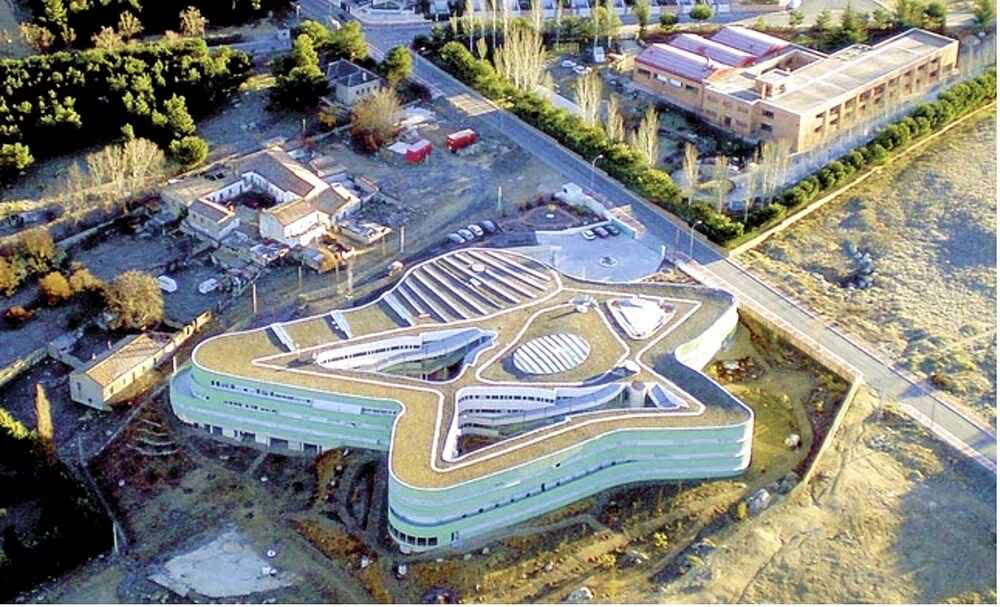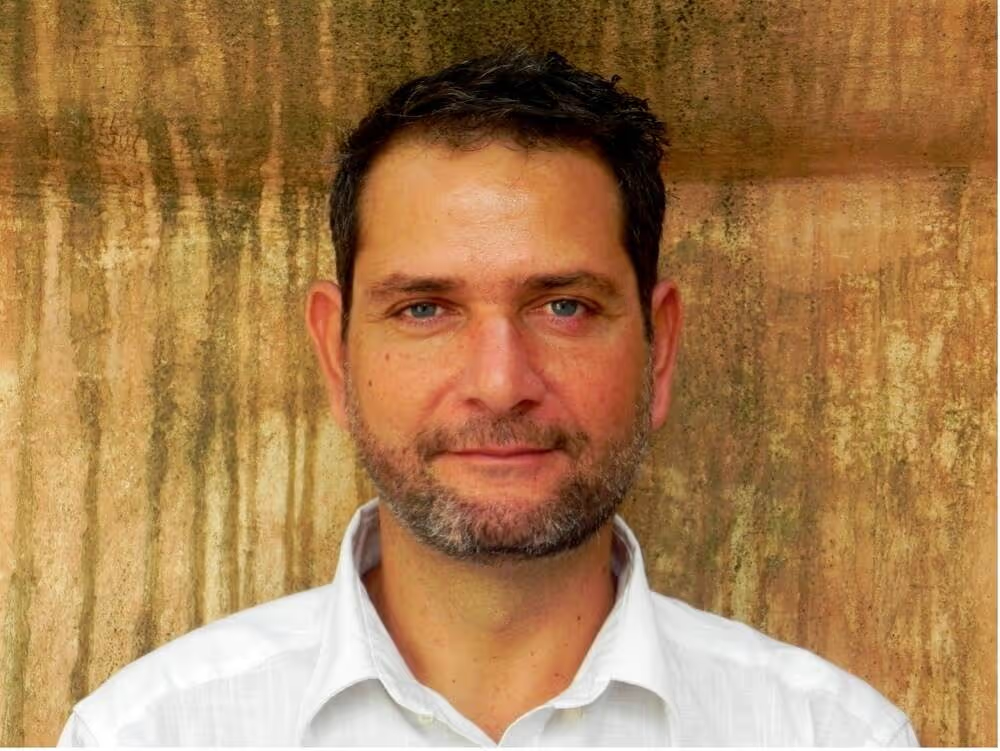The Catholic Order of Discalced Carmelites and the International Teresian-Sanjuanist Center (CITeS), in collaboration with the Center for Buddhist Studies (CBS) of the University of Hong Kong (HKU) and the Dharma-Gaia Foundation (FDG), have announced the "3rd WORLD ENCOUNTER OF THERESIAN MYSTICS AND INTERRELIGIOUS DIALOGUE. Tibetan Buddhism and Carmelite Spirituality: GUIDELINES FOR VISUALIZING, CONTEMPLATING AND ENCOUNTERING THE SACRED", which will take place in the Castilian city of Avila, Spain, from July 25 to 28, 2024.

This will be the third collaboration between CITeS and the CBS. In 2016, CITeS announced its intention to hold a series of interreligious meetings to establish a fruitful dialogue between Carmelite spirituality and the great traditions of Buddhism. The "First World Meeting Teresian Mysticism and Interreligious Dialogue. Theravada Buddhism and Teresian Mysticism: meditation and contemplation, paths to peace", took place in Avila with great success in attendance, between 27 and 30 July 2017. The second congress, "Chan/zen Buddhism and Carmelite Spirituality: on love and compassion", which would have taken place in the city of Avila from July 22-26, 2020, had to be cancelled due to the pandemic, although the papers that had been prepared for the congress will be published.
In this third congress, a delegation of scholars, monastics and experts in Tibetan Buddhism from Hong Kong, India, Bhutan, Austria, Germany, Greece and the United States will travel to Avila for four days of dialogue and fraternal coexistence. Among the speakers are renowned exponents of their respective traditions.
The proposed theme for this meeting is to explore the role of revelation and visions in attaining wisdom. In both the Carmelite and Tibetan Buddhist traditions, visualization and contemplation are considered fundamental practices for fostering spiritual growth and deepening one's relationship with the sacred. Although these traditions have different cultural, philosophical and theological contexts, they share elements in their commitment to spirituality. Both emphasize the importance of prayer and contemplation as a means to reach the "ultimate.
Both Carmelite and Buddhist mysticism seek spiritual fulfillment through different paths. The former seeks knowledge of oneself and of Jesus Christ, which implies loving attention and a disposition to the divine presence. Buddhists, on the other hand, seek enlightenment through meditation and self-realization. Both forms of mysticism share the importance of discipline, contemplative practices and rituals, the overcoming of the ego through a process of purification and enlightenment, and the role of suffering as a means of spiritual growth.
The purpose of this invitation is to foster mutual understanding of the religious convictions, practices and goals of believers and scholars of these two traditions. During four days of exchange, participants will have numerous opportunities for spiritual enrichment by learning about the beliefs and practices of both traditions, as well as exploring common affinities and differences in a spirit of unity, integrity and mutual respect.
On the Carmelite side, the professors of the Teresian-Sanjuanist International Center are known to be academic exponents of Carmelite spirituality and, in addition, they will be joined as lecturers by other reputable Christian scholars and contemplatives.
The tradition of Tibetan Buddhism will be represented by renowned scholars and experienced meditators. The meditation workshop will be conducted by a meditation master from India. A group of monks will recite sutras and chants in the mornings after the Christian mass.
On the occasion of this article we interviewed Dr. Georgios T. Halkias, a specialist in Tibetan forms and practices of Buddhism in Tibet, Central Asia and the Himalayas and director of the Center for Buddhist Studies (CBS) of the Hong Kong University (HKU), who kindly answered our questions:
DMG: What are your expectations for the Carmelite-Tibetan Buddhist Congress to be held in Avila, Spain in July 2024?
GEORGIOS T. HALKIAS: The diverse traditions of Christianity and Buddhism have rich histories and philosophies. An academic encounter between the two conducted in a spirit of dialogue and openness could lead to greater mutual understanding and respect for the similarities and differences between these two profound religious traditions. Participants in such an encounter may gain new and transformative insights into their own religious beliefs, rituals and contemplative practices. They may also wish to promote shared goals, such as social harmony, contemporary ethical values and compassion in our world. It is a shared expectation that a significant scholarly contribution from the conference will be printed to further promote the need for collaboration and interfaith dialogue and studies in comparative religion.
DMG: In your opinion, is there any common ground between Christianity and Buddhism that can be explored during the interfaith congress?
GH: Buddhism and Christianity are two sophisticated soteriological systems that equally emphasize the importance of compassion, forgiveness, the pursuit of peace and the value of living a moral and ethical life. Christians and Buddhists are committed to alleviating suffering in the world and facilitating the vision and circumstances for individual and collective spiritual development. There are also similarities in the spiritual methods employed to lead a meaningful life enhanced by contemplation, worship and prayer. These are some shared terrains that we might explore with representatives of the Carmelite and Vajrayana traditions.

As on previous occasions, this third congress will feature paper presentations, talks, meditation workshops, rituals and chanting, to name but a few of the many activities that will take place, all conducted in an atmosphere of conviviality and fraternity. Presentations from both sides on the theme will be followed by panel discussions led by knowledgeable moderators from both traditions.
The congress will be conducted in English and Spanish with simultaneous translators. The meeting will be broadcast in its entirety on the Internet and will also be recorded on DVD. The proceedings will be published.
The registration form and the congress program are available at the following link: 3rd-WORLD-MISTIC-TERESIAN-MISTIC-INTERRELIGIOUS-INTERRELIGIOUS-INTERRELIGIOUS-INTERRELIGIOUS-INTERRELIGIOUS-V_5-def.pdf (buddhistdoor.net)
The venue for the meeting will be the CITeS headquarters, an impressive star-shaped building with ample light-filled spaces and excellent facilities. CITeS is located within the medieval walled enclosure of Avila, the city where St. Teresa of Jesus was born. Avila, known as the city of songs and saints, was declared a World Heritage Site by UNESCO in 1985.
As on previous occasions, this third congress will feature paper presentations, talks, meditation workshops, rituals and chanting, to name but a few of the many activities that will take place, all conducted in an atmosphere of conviviality and fraternity. Presentations from both sides on the theme will be followed by panel discussions led by knowledgeable moderators from both traditions.
The congress will be conducted in English and Spanish with simultaneous translators. The meeting will be broadcast in its entirety on the Internet and will also be recorded on DVD. The proceedings will be published.
The registration form and the congress program are available at the following link: 3rd-WORLD-MISTIC-TERESIAN-MISTIC-INTERRELIGIOUS-INTERRELIGIOUS-INTERRELIGIOUS-INTERRELIGIOUS-INTERRELIGIOUS-V_5-def.pdf (buddhistdoor.net)
The venue for the meeting will be the CITeS headquarters, an impressive star-shaped building with ample light-filled spaces and excellent facilities. CITeS is located within the medieval walled enclosure of Avila, the city where St. Teresa of Jesus was born. Avila, known as the city of songs and saints, was declared a World Heritage Site by UNESCO in 1985.

IV International Award Teresa of Jesus and Interreligious Dialogue.
On the third day of the Congress, the "IV International Teresa of Jesus and Interreligious Dialogue Award" will be presented. This award was created by CITeS with private donations to expand the spiritual health of humanity and promote authentic interreligious dialogue. This third call focuses on comparative studies between Carmelite spirituality and other religious traditions, and its winner will receive a prize of 6,000 euros. For the four finalists, the prize is 1000 euros each. The winning papers will be considered for inclusion in a special commemorative volume.
For more information on the IV International Award Teresa of Jesus and Interreligious Dialogue, please consult this link: https://www.mistica.es/recursos/noticias-del-cites/iv-premio-internacional-teresa-de-jesus-y-el-dialogo-interreligioso
The congress organizers invite attendees to visit Avila, a World Heritage City located one hour by train from Madrid. Avila has a rich cultural and architectural heritage, reflected in its old town, where Jews, Muslims and Christians coexisted for centuries. Congress participants will be able to appreciate the context of the convention after walking along the 2.5 km of medieval walls and visiting places such as the convent and museum of Santa Teresa. In addition, Avila is close to other interesting destinations in Spain, such as the historic city of Toledo, as well as other major European cities.
This event will be extensively covered by Buddhistdoor Global and Buddhistdoor en Español.
Links:
CITeS: International Centre of Teresian and Sanjuanist Studies
CBS (HKU): The Centre of Buddhist Studies of the University of Hong Kong
News related to Buddhistdoor in English:
The importance of interreligious dialogue and objectives for encounter from a Buddhist perspective.
-----------
Daniel Millet Gil holds a degree in Law from the Autonomous University of Barcelona, a Master's degree in Buddhist Studies from the Centre for Buddhist Studies at the University of Hong Kong, and a PhD in Buddhist Studies from the Centre for Buddhist Studies at the University of Hong Kong. He received the Tung Lin Kok Yuen Award for Excellence in Buddhist Studies (2018-2019). He is a regular contributor and editor of the web platform Buddhistdoor en Español. He is founding president of the Dharma-Gaia Foundation, a non-profit organization dedicated to the teaching and dissemination of Buddhism in Spanish-speaking countries. And co-director of the Buddhist Studies Program of the Fundació Universitat Rovira i Virgili (FURV), an initiative of the FDG and FURV. He has published numerous titles in academic and divulgative journals that can be consulted at: https://hku-hk.academia.edu/DanielMillet










